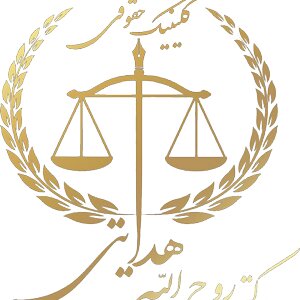Best Antitrust Litigation Lawyers in Iran
Share your needs with us, get contacted by law firms.
Free. Takes 2 min.
Or refine your search by selecting a city:
List of the best lawyers in Iran
About Antitrust Litigation Law in Iran
Antitrust litigation in Iran is primarily governed by laws designed to foster healthy competition, protect consumers, and prevent unfair business practices such as monopolies, price fixing, and abuse of market dominance. The cornerstone of these regulations is the "Law on the Implementation of General Policies of Article 44 of the Constitution" and its accompanying executive bylaws. The primary governmental body overseeing these matters is the Iranian Competition Council. Antitrust litigation refers to the legal process of resolving disputes and enforcing rules when businesses or individuals violate antitrust laws. Such issues may involve government investigations, private lawsuits, or regulatory penalties.
Why You May Need a Lawyer
Antitrust litigation is complex and often involves interpreting specialized laws, collecting evidence, and negotiating with regulators or opposing parties. You may need a lawyer if:
- Your business is accused of anti-competitive behavior, such as price fixing or abusing a dominant position.
- You are affected by another company’s monopolistic or unfair trade practices and seek damages.
- You need advice on business mergers, acquisitions, or partnerships that may raise antitrust concerns.
- You wish to challenge decisions made by regulatory authorities like the Iranian Competition Council.
- Your company is under investigation by government agencies for possible violation of antitrust laws.
A lawyer will help you understand your rights, navigate the legal process, and potentially reduce risks associated with non-compliance.
Local Laws Overview
Iran’s antitrust legal framework revolves around maintaining free competition and preventing economic concentration. The most relevant aspects include:
- Prohibition of Monopoly and Collusion: Laws forbid any agreement or coordination between businesses that results in price fixing, bid rigging, or division of markets and resources.
- Restrictions on Abuse of Dominant Position: Companies holding significant market power are restricted from taking actions that could harm competition, such as predatory pricing or imposing unfair conditions.
- Merger Control: Mergers, acquisitions, or any consolidation of businesses that may reduce competition are subject to review and approval by regulatory authorities.
- Competition Council’s Role: The Iranian Competition Council supervises market practices, investigates complaints, and can impose penalties, including fines and corrective orders.
- Judicial Review: Courts may be involved in reviewing cases, especially where parties wish to challenge the Council’s decisions or seek remedies for anti-competitive conduct.
Frequently Asked Questions
What is considered a violation of antitrust laws in Iran?
Typical violations include price fixing, market sharing, bid rigging, abusing dominant market positions, and entering into anti-competitive agreements.
Who enforces antitrust laws in Iran?
The Iranian Competition Council is the primary regulatory body for enforcing and overseeing antitrust law compliance.
Can private individuals or companies file complaints?
Yes. Both individuals and companies can file complaints with the Competition Council if they believe antitrust laws have been violated.
What penalties can result from violating antitrust laws?
Penalties may include fines, orders to cease offending activities, and in severe cases, orders to dismantle merged entities or rescind agreements.
Are all mergers subject to review?
Not every merger is reviewed. Only those that may significantly reduce or restrict competition in a specific market are reviewed by authorities.
Can decisions by the Competition Council be appealed?
Yes. Parties affected by Council decisions may seek judicial review or appeal certain decisions in the administrative or civil courts.
What should I do if my business is under investigation?
It is important to consult with a qualified antitrust lawyer, preserve all relevant documents, and cooperate with investigators while protecting your legal rights.
How long does antitrust litigation typically take?
The duration can vary depending on the complexity of the case, but can range from several months to several years, especially if appeals are involved.
Is it possible to settle antitrust cases out of court?
Yes. In some cases, parties may negotiate settlements or corrective actions with regulatory authorities to resolve issues without formal litigation.
What are some common defenses in antitrust litigation?
Common defenses include lack of market dominance, demonstration of pro-competitive benefits of actions, and factual disagreements over alleged conduct.
Additional Resources
For those seeking guidance or more information on antitrust matters in Iran, the following resources may be helpful:
- Iranian Competition Council: The main authority for antitrust regulation and complaint resolution.
- Ministry of Industry, Mine and Trade: Offers oversight and information on market regulations and economic activities.
- Local law firms specializing in competition law: Many firms offer consultations for affected businesses and individuals.
- Chambers of Commerce: May provide seminars, publications, and support services regarding fair trade practices.
- Legal education centers and universities: Can be a source for scholarly articles and training on competition law in Iran.
Next Steps
If you believe you are involved in a situation requiring antitrust legal assistance, consider the following steps:
- Document the issue: Collect all relevant contracts, correspondence, and evidence related to the alleged anti-competitive behavior or investigation.
- Seek qualified legal advice: Consult a lawyer with experience in Iranian competition law to evaluate your situation and provide guidance.
- Contact appropriate authorities: File a complaint or respond to inquiries through the Iranian Competition Council, if necessary.
- Stay informed: Keep updated on legal requirements and processes associated with antitrust laws in Iran.
- Consider mediation or settlement: Where possible, consider alternative dispute resolution to avoid lengthy litigation.
Navigating antitrust matters in Iran requires understanding complex regulations, so timely legal support is essential to protect your interests and ensure compliance.
Lawzana helps you find the best lawyers and law firms in Iran through a curated and pre-screened list of qualified legal professionals. Our platform offers rankings and detailed profiles of attorneys and law firms, allowing you to compare based on practice areas, including Antitrust Litigation, experience, and client feedback.
Each profile includes a description of the firm's areas of practice, client reviews, team members and partners, year of establishment, spoken languages, office locations, contact information, social media presence, and any published articles or resources. Most firms on our platform speak English and are experienced in both local and international legal matters.
Get a quote from top-rated law firms in Iran — quickly, securely, and without unnecessary hassle.
Disclaimer:
The information provided on this page is for general informational purposes only and does not constitute legal advice. While we strive to ensure the accuracy and relevance of the content, legal information may change over time, and interpretations of the law can vary. You should always consult with a qualified legal professional for advice specific to your situation.
We disclaim all liability for actions taken or not taken based on the content of this page. If you believe any information is incorrect or outdated, please contact us, and we will review and update it where appropriate.
Browse antitrust litigation law firms by city in Iran
Refine your search by selecting a city.















